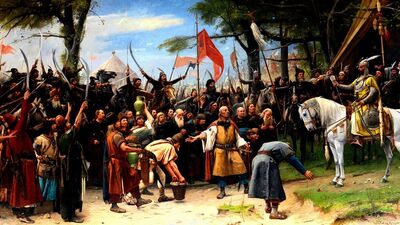Már nincs sok idő hátra: most kell kezünkbe venni a sorsunkat

Fontos kérdésben kéri ki a magyar emberek véleményét a kormány.

The governor leaves office with a budget in desperate shape, but he set a new political course for California.
„Was the recall worth it? Is California better off for having ousted Gov. Gray Davis in 2003, just after reelecting him to a second term, and replacing him with perhaps the most unlikely of governors, movie action hero Arnold Schwarzenegger?
It's a question that has been asked a lot over the last several months as Schwarzenegger winds down his second term, with California's finances in the worst shape since the Depression and his approval rating lower than Davis' was at its nadir. To answer the question is to assess Schwarzenegger's tenure, but also to assess Californians - their mood, their attitude toward government, their sense of themselves. The Times editorial page seeks to answer the question in part by re-examining its take on the recall, on the governor and on his policies over the last seven years, and finds the period filled with lost opportunities and costly diversions of attention. But we also find that a state that had been drifting - unable to take action, except anti- government action, on such issues as water, infrastructure and political reform - has begun to move forward again.
This page was no fan of the recall. »There were no reasonable standards in calling for a new election«, we wrote. »Davis was elected last year with 47% of the vote; months later, political opponents spent millions to replay the election. Now the state will spend $66 million for a special election, with 135 official candidates, come one, come all. If the recall prevails, the winner, with a minority of the overall vote, would replace a governor who got a large plurality. It's undemocratic.« As for Schwarzenegger, we said, what a shame that he failed to use his campaign to lead a serious discussion of what ails California and how to fix it.”











